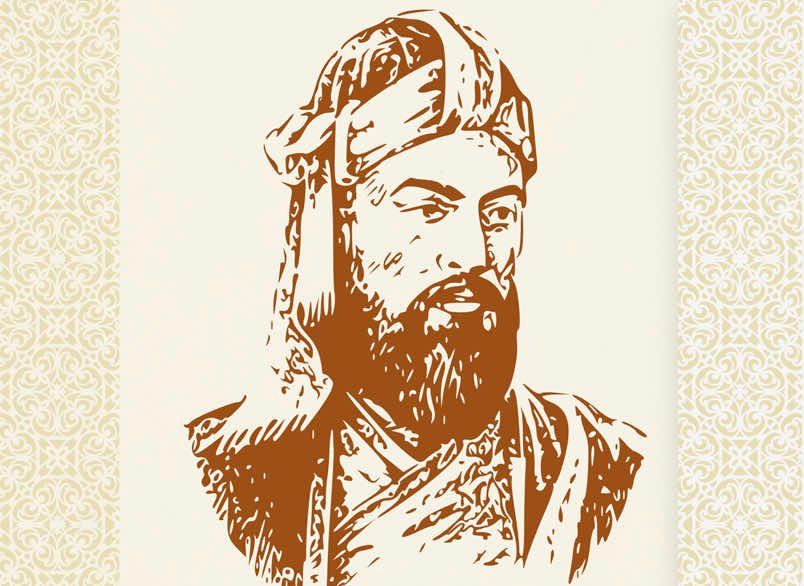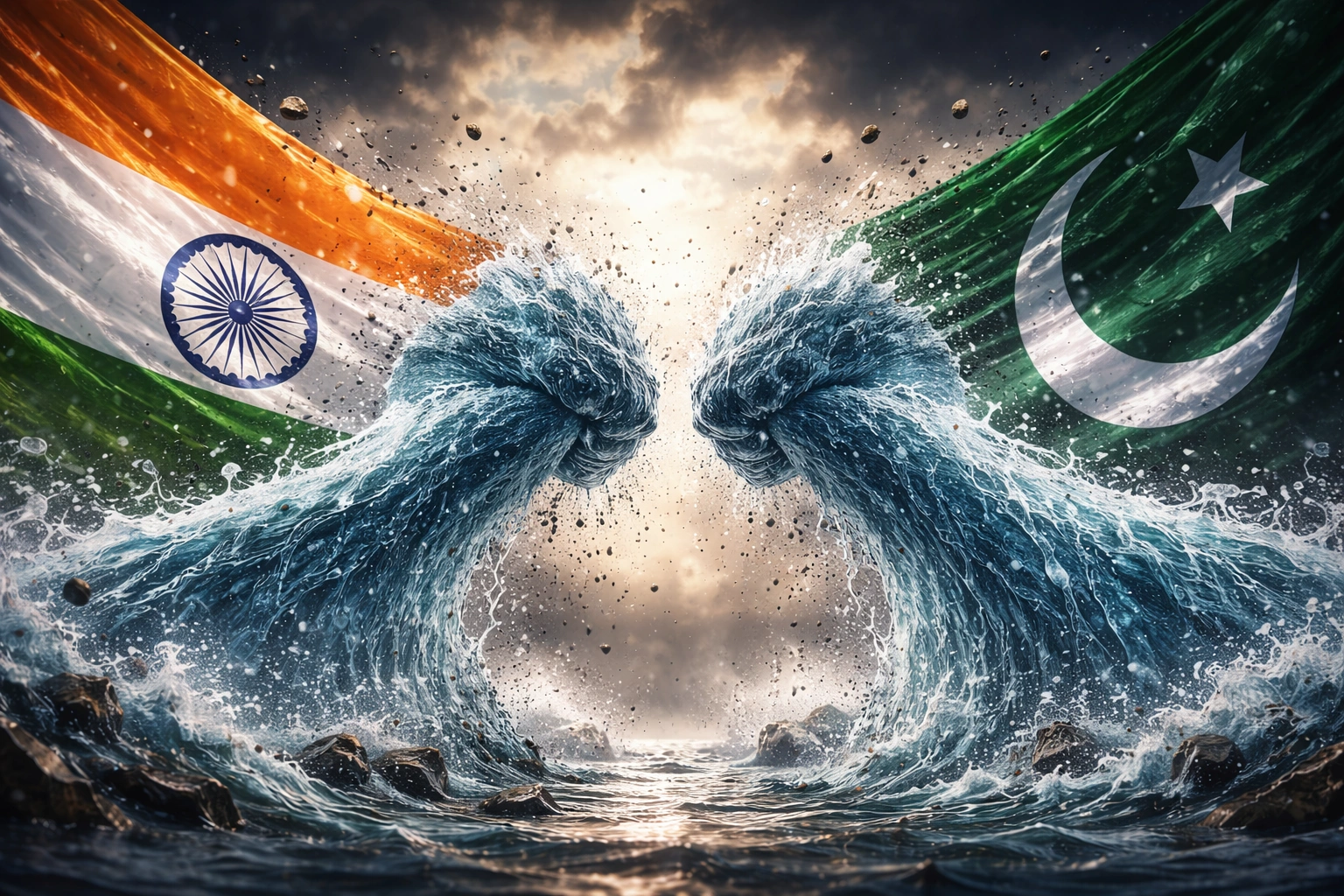“Wired for Worth: Why We All Need Respect, Dignity, Care and Love”
Transforming Love, Care and Respect into Global Diplomacy
Human beings, no matter where they come from or what background they have, share certain deep needs. Among the most important are the need to be respected, to live with dignity, to receive care and to feel loved. These are not just emotional desires or nice ideas they are fundamental parts of what it means to be human. From a child crying for attention to an elderly person hoping not to be forgotten, this constant search for connection and recognition can be seen in daily life, everywhere. But why is this need so strong and why do we all seem to carry it from birth to death?
Science offers one way to understand this. Our brains are designed for connection. Neuroscientists have found that when people are respected, loved or cared for their brains release chemicals like dopamine and oxytocin which create feelings of happiness, trust and safety. On the other hand being ignored, insulted or treated unfairly activates the same part of the brain that feels physical pain. That’s why being disrespected or rejected can hurt just as much as a physical injury. A child who is bullied in school or a worker who is constantly criticized without kindness doesn’t just feel bad emotionally they are also hurt on a brain level. Our minds are not separate from our feelings they are shaped by them.
This connection to others goes deep into human history. Long ago humans had to live in groups to survive. People hunted together, protected each other and raised children as a community. If someone was left out or pushed away from the group, their chances of survival were very low. Being loved and respected wasn’t just pleasant it was a matter of life or death. Over time, this made us into creatures who fear rejection and long for connection. Even now, in modern cities and with technology all around us, we carry this old need inside us. A teenager who feels unseen by their family or friends may not be in physical danger but emotionally and mentally they can still feel lost and unsafe.
Philosophy also helps explain why these needs matter. Thinkers like Immanuel Kant argued that every human being has value simply because they are human. This idea called human dignity means that no one should be used, ignored or treated as less than others. You don’t have to earn dignity by doing something special; you have it just by existing. This belief forms the basis for all types of human rights, inclusion, laws against discrimination and global ideas of fairness. When people are treated with respect and dignity they feel like they belong in the world. When they are not they may feel invisible, angry or broken.
Psychology shows how this begins in early life. A baby who is held, comforted and spoken to learns quickly that they are safe and loved. As they grow up, this feeling forms the base of their self-worth. A child who is regularly praised, hugged and listened to will most likely grow into a confident and caring adult. But a child who is ignored, constantly criticized or mistreated may grow up to feel unloved or unsure of their worth. These early experiences shape how we respond to love, care and respect for the rest of our lives. For example, a man who was raised in a home where no one showed affection might struggle to trust others later, even if people try to care for him.
We also learn about respect and care through the cultures we live in. Every society has ways of showing who is valued through greetings, manners and social roles or even who gets attention in the media. These signs send a message: “You matter” or “You don’t.” In some cultures standing up when an elder enters the room shows respect. In others, calling someone by their first name may be a sign of closeness. Today, social media often replaces these older signs of value. People count “likes,” followers or comments as signs of being seen and appreciated. While these can be positive, they can also create confusion because online attention may not always come with true care or respect.
Spiritual and religious beliefs also help explain why love, dignity and care are so important. Many religions teach that all people are created by God and have a special value. In Islam, the Qur’an says God has honoured the children of Adam. In Christianity, the teaching of “love thy neighbour” is central. In Buddhism, showing compassion to all living beings is a key part of the path. These beliefs tell us that treating others with kindness is not just a social rule it is a moral duty. They remind us that even the poorest, weakest or most forgotten person still has worth.
From my personal reflection and study of human behaviour, I propose a theory that our desire for respect, love and care is not learned from society alone it is rooted in our earliest experiences even before we are born. In fact, the human need to be valued begins in the mother’s womb and is reinforced in early childhood through the love, protection and attention we naturally receive. These early experiences plant the psychological seeds of our lifelong search for connection and dignity.
During pregnancy, a developing baby lives in a secure, warm and protected environment inside the mother’s body. This prenatal space is not only physically safe but also shaped by the mother’s emotions and care. Scientists have found that fetuses respond to their mother’s voice, heartbeat and even mood. For example, research in fetal psychology shows that babies in the womb can recognize familiar sounds and respond positively to soft music and their mother’s voice while reacting negatively to stress and loud noise. This suggests that even before birth, a baby begins to associate certain feelings and experiences with safety, connection and emotional well-being.
After birth, most babies continue to receive high levels of attention and care especially from their mothers or primary caregivers. Feeding, holding, soothing and talking to the baby are all expressions of care that reinforce the infant’s sense of value. Though new-borns do not think in words, their brain is developing rapidly. The emotional tone of their environment whether it is loving and secure or cold and neglectful becomes a building block for their later understanding of self-worth and trust.
Psychologists like John Bowlby and Mary Ainsworth, through their Attachment Theory found that the emotional bond formed between a child and their caregiver plays a vital role in shaping that child’s future ability to connect with others. A child who receives consistent love and attention develops what is called “secure attachment.” This child grows up feeling worthy of love and expects others to treat them with care and respect. On the other hand, children who are neglected or experience inconsistent care may develop “insecure attachment,” often struggling with trust, self-esteem and emotional regulation throughout their life. While some enter to gangs of similar minds of dissonance, hate, violence until enter to crime world or radicalisation process.
These ideas support my core belief: that care and respect are not optional parts of a child’s early life they are essential. When a baby is fed gently, rocked to sleep or comforted when crying, they are not just having their physical needs met they are receiving messages that they matter, that their presence is important and that they are safe in the world. These messages are stored not just in memory but in emotional and neurological pathways that shape the way the child understands relationships and self-worth.
What I find most profound is that this early care becomes part of a child’s conscious awareness even if they cannot express it. Though they may not recall these moments with words, the experiences shape the foundations of the self. Many neuroscientists support the idea that implicit memory the kind of memory stored in the body and emotions rather than in words begins forming in infancy. These unconscious memories influence how we respond to others, how much love we accept and how we view ourselves. Therefore, the loving attention a baby receives is not forgotten; it becomes the emotional blueprint of the person they grow up to be.
But this early pattern of love and care doesn’t end with childhood. In fact, it continues to shape our emotional needs throughout our entire life. After we grow up, we carry inside us a deep memory of how it felt to be unconditionally loved, protected and valued first in the womb and then in our mother’s arms. Even if we cannot remember it with our minds, our hearts and nervous systems still remember what it was like to be cherished just for existing.
This is why, as adults we often seek out the same kind of love and acceptance we once received in our earliest days. We may search for it in our romantic partners, hoping they will provide us with emotional safety, attention and unconditional acceptance. We may look for it in friendships desiring people who will listen to us, stand by us and affirm our worth. At work, we often seek approval from bosses or colleagues not only for professional recognition but also because being appreciated feels emotionally grounding. Even in schools, students long to be seen, encouraged and respected by their teachers not just for their performance but for who they are.
This constant search is not a weakness it is part of being human. We are in a very real sense always trying to reconnect with that first feeling of being valued. The baby that once looked into their mother’s eyes and felt safe still lives inside each of us. And when we don’t find that same love in adult life when partners ignore us, friends betray us or workplaces treat us like machines it can awaken a deep sadness or confusion. It’s as if something essential is missing, because in truth something is missing: the emotional echo of the love we first knew.
This idea connects closely with the theories of psychologist Erik Erikson, who believed that our emotional development unfolds in stages throughout life, each stage building on the earlier ones. The earliest stage, “trust versus mistrust,” is all about whether the infant feels secure in their relationships. If that trust is built strongly it becomes a foundation for healthy relationships in later life. If it’s weak or broken the person may spend much of their life trying to repair that early wound by searching often unconsciously for what was missing.
In short, the love and care we receive at the beginning of life do not disappear. They become part of our inner structure, shaping how we relate to the world and to ourselves. Our need for respect, dignity, care and love is not something we grow out of. It simply evolves from the cradle to adulthood and from the family home to society at large. What begins as a mother’s embrace becomes a lifelong pursuit: a search for emotional safety, for belonging, for the deep and silent message, “You matter.”
Sadly, we can see the effects of missing care and respect all around us. People who are denied these basic human needs often begin to suffer in serious ways. They may become depressed, angry or isolated. Some turn to crime, addiction or even violence not because they are evil but because they are desperate to feel seen and heard. A young boy who grows up without care may join a gang not because he wants to hurt others but because it’s the first place where he feels accepted. A woman or man who is constantly disrespected in her home or workplace may stop speaking up not because she lacks ideas but because she no longer feels her voice matters.
That’s why the need for respect, dignity, care and love is not just personal it is social. It affects how communities grow, how schools function, how workplaces treat people and how nations relate to each other. Giving people love and respect doesn’t make them weak; it makes them strong, responsible and connected. It makes society safer and more united.
In the end, it is clear: respect, dignity, care and love are not extra wishes they are basic needs, like food or water. We are all born wired to seek them and we all suffer when they are missing. Every small act of kindness saying thank you, listening with care, forgiving someone, offering help can feed this deep need in another person. And when we give that to others, we often find it returned to us.
Being human means more than just surviving it means living with meaning, connection and worth. And we can only do that together by recognizing the deep truth that each of us is wired for worth.
From the Cradle to the Globe:
Transforming Love, Care and Respect into Global Diplomacy
If the deep need for love, care, and respect is so essential at the individual level, then it stands to reason that it also exists in collective human identities such as families, communities and even nations. Nations are not abstract entities; they are made up of people. And just like individuals, nations also want to be seen, valued and respected. They seek recognition of their culture, their history, their dignity and their unique role in the world. When they are ignored, insulted or treated unfairly by others, they too respond sometimes not with tears but with tension, resistance and even war.
This observation opens up a powerful possibility: what if we applied the same emotional principles that build secure individuals to our relationships between countries? What if foreign affairs were reimagined not as a battlefield of interests, but as a platform of emotional understanding, mutual respect and shared human needs?
Just as a child becomes aggressive when they are neglected or disrespected, so too do nations react defensively when they are treated with superiority or disregard. Consider global conflicts not all wars begin with physical attacks. Many begin with long histories of humiliation, broken trust, exclusion and disrespect. These emotional wounds, unhealed and ignored can grow into national anger, radicalization or revenge-driven ideologies. But what if, instead of building missiles and alliances of fear, the world began building bridges of emotional diplomacy?
I propose a new concept: “Emotional Diplomacy” a global framework where nations engage with one another based on the same emotional principles that shape healthy human relationships. This means moving beyond cold strategy and legal agreements and instead fostering respect, empathy, acknowledgment of pain and emotional reconciliation between nations. Emotional Diplomacy could create a Department of National Empathy in every foreign ministry tasked with identifying emotional histories, cultural wounds and past traumas in inter-state relations and working to heal them through symbolic gestures, open apologies or mutual recognition.
Imagine a world where international peace summits begin not with trade agreements, but with truth-telling sessions where nations openly share their emotional wounds from past colonization, war or betrayal and then listen without judgment to others. Instead of trying to “win” diplomacy, countries would try to “understand” each other. The aim would not be dominance but dignity.
Emotional Diplomacy could also be taught to diplomats, Ambassadors and peace negotiators through a new curriculum rooted in psychology, trauma studies and intercultural communication. These diplomats would be trained not only in law and negotiation but also in empathy, cultural humility, active listening and emotional repair. This training would equip them to handle not only political interests but the emotional undercurrents that often shape those interests.
On a more institutional level, the United Nations could adopt an “International Charter of Respect Among Nations” a moral and philosophical document affirming that every country, regardless of size, economy or military has the right to be treated with dignity and fairness. This could become the basis for resolving conflicts without war not through power but through presence, dialogue and mutual recognition.
Additionally, every international embassy could establish a “Care and Culture Room” a public-facing space where citizens of each country engage in storytelling, artistic exchange, healing projects and empathy-based dialogue with others. These spaces would humanize international relations making foreign policy not just the work of officials but a shared emotional experience between people.
The key idea is this: when nations treat each other with the same care, respect and emotional intelligence that a healthy parent offers a child or that two true friend’s offer each other the cycle of war can be replaced with the cycle of reconciliation.
This may sound idealistic, but it is no more idealistic than the idea of human rights once was. After World War II, the global community agreed to recognize the equal dignity of all people. Now, after series of wars globally, it is time to recognize the emotional dignity of all nations.
Peace is not just the absence of bombs. Peace is the presence of emotional balance, mutual trust and a shared sense of worth across borders. Love, care and respect do not have to stay in the nursery of childhood they can become the new language of foreign affairs. When that happens war will no longer be the final stage of failed diplomacy it will be an outdated memory from a time when we had not yet learned to listen to the emotional heartbeat of the world.
Finally with a prayer, peace prevail and we gift a peaceful prosperous globe to our next generation and not chain of wars as we continued.
References
- Bowlby, J. (1969). Attachment and loss: Vol. 1. Attachment. New York: Basic Books.
- Ainsworth, M. D. S., Blehar, M. C., Waters, E., & Wall, S. (1978). Patterns of attachment: A psychological study of the strange situation. Lawrence Erlbaum.
- Erikson, E. H. (1950). Childhood and society. New York: W. W. Norton & Company.
- Siegel, D. J. (1999). The developing mind: How relationships and the brain interact to shape who we are. Guilford Press.
- Eagleman, D. (2011). Incognito: The secret lives of the brain. Pantheon.
- Lieberman, M. D. (2013). Social: Why our brains are wired to connect. Crown Publishers.
- Eisenberger, N. I., & Lieberman, M. D. (2004). Why rejection hurts: A common neural alarm system for physical and social pain. Trends in Cognitive Sciences, 8(7), 294–300. https://doi.org/10.1016/j.tics.2004.05.010
- Zak, P. (2012). The moral molecule: The source of love and prosperity. Dutton.
- Damasio, A. (1999). The feeling of what happens: Body and emotion in the making of consciousness. Harcourt.
- Kant, I. (1785). Groundwork for the metaphysics of morals (M. Gregor, Trans., 1997 ed.). Cambridge University Press.
- Nussbaum, M. C. (2011). Creating capabilities: The human development approach. Harvard University Press.
- Honneth, A. (1995). The struggle for recognition: The moral grammar of social conflicts. MIT Press.
- Goffman, E. (1959). The presentation of self in everyday life. Anchor Books.
- Taylor, C. (1992). The politics of recognition. In A. Gutmann (Ed.), Multiculturalism and “The Politics of Recognition” (pp. 25–73). Princeton University Press.
- Bourdieu, P. (1984). Distinction: A social critique of the judgement of taste (R. Nice, Trans.). Harvard University Press. (Original work published 1979)
- Perry, B. D., & Szalavitz, M. (2006). The boy who was raised as a dog: And other stories from a child psychiatrist’s notebook. Basic Books.
- Gilligan, J. (1996). Violence: Reflections on a national epidemic. Vintage.
- Moghaddam, F. M. (2005). The staircase to terrorism: A psychological exploration. American Psychologist, 60(2), 161–169. https://doi.org/10.1037/0003-066X.60.2.161
- Sageman, M. (2004). Understanding terror networks. University of Pennsylvania Press.
- Armstrong, K. (2010). Twelve steps to a compassionate life. Alfred A. Knopf.
- Galtung, J. (1996). Peace by peaceful means: Peace and conflict, development and civilization. Sage Publications.
- Nye, J. S. (2004). Soft power: The means to success in world politics. PublicAffairs.
- Fisher, R., & Ury, W. (1981). Getting to yes: Negotiating agreement without giving in. Penguin Books.
- Lederach, J. P. (2005). The moral imagination: The art and soul of building peace. Oxford University Press.
- United Nations. (1945). Charter of the United Nations and Statute of the International Court of Justice. https://www.un.org/en/about-us/un-charter
- UNESCO. (1995). Declaration of principles on tolerance. Retrieved from https://unesdoc.unesco.org/ark:/48223/pf0000117592
- Goleman, D. (1995). Emotional intelligence: Why it can matter more than IQ. Bantam Books.
- Brackett, M. (2019). Permission to feel: Unlocking the power of emotions to help our kids, ourselves, and our society thrive. Celadon Books.
- Davidson, R. J., & Begley, S. (2012). The emotional life of your brain: How its unique patterns affect the way you think, feel, and live—and how you can change them. Hudson Street Press.
- Truth and Reconciliation Commission of South Africa. (1998). Truth and Reconciliation Commission of South Africa Report. https://www.justice.gov.za/trc/

Mr. Tahir Mahmood is a renowned expert in the field of counter-radicalisation, known for his extensive work with various governments to solve complex challenges through knowledge based methods and out of box solutions.

Tahir Mahmood is director of Norwegian Resource Centre, a renowned expert in counter-radicalization & governance methods, known for his work with multiple governments to address complex challenges through innovative knowledge-based &scientifically systematic solutions, Author of famous books “The Rational Blueprint “and “The Stable Coin Imperative”: Protecting Banks, Preserving Sovereignty & Pioneering the Future of Finance – A Policy Paper for Governments, Bankers& the Public.
He has contributed to the EU-funded RiskTrack research project & is currently developing a new crime theory.












